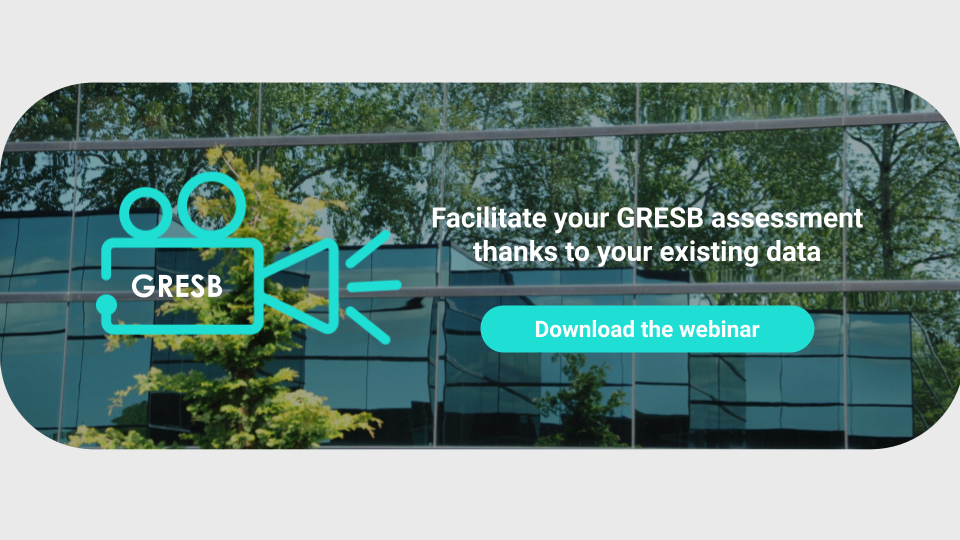What is GRESB?
GRESB is a private, for-profit organization promoting sustainable real asset investments, with the aim of meeting today’s needs while respecting those of future generations. Created in 2009, GRESB offers an annual assessment that evaluates and compares real estate companies based on their extra-financial performance.
Also read: Real Estate – enhance your extra-financial performance with GRESB!
Focus and strategic pillars
GRESB assesses the extra-financial performance of property management companies, publishing standardized, validated information that helps real estate actors size up their ESG strategy and spot areas for improvement.
In 2019, over 1,000 companies participated in the GRESB assessment across 64 countries – a 12% increase compared to 2018.
The GRESB assessment is based around three cornerstones:
- assessment: defining standardized, validated criteria to ensure the sustainability of real estate assets
- technology: providing a reporting platform that allows users to file ESG data, evaluate their assets’ extra-financial performance and compare themselves to industry peers
- stakeholders: building a global community committed to a common vision for sustainability in real estate
Why respond to GRESB?
Responding to the GRESB assessment brings a number of benefits:
- helping to highlight your ESG strategy and make your funds more attractive
- improving communication with your stakeholders (especially investors), who are increasingly attuned to asset sustainability
- enabling you to devise an effective ESG strategy, or enhance your existing strategy by identifying areas for improvement
Also read: Real estate – How to respond to GRESB assessment
Breaking down the challenges
The GRESB assessment is a 3-part process:
- ESG data collection
- response to the assessment
- scoring and star rating
While the response step is fairly straightforward, data collection can be a real headache – calling for a wide range of information (qualitative and quantitative) that’s often scattered across in-house departments and outside service providers.
Another challenge lies in the granularity of data to be centralized:
- at the company level (ex: presence of an ESG manager)
- at the asset level (ex: overall asset consumption)
- on consumption for common and private areas (the latter being personal data)
Voluntary initiatives like GRESB are crucial to your ESG strategy today, but you need a rigorous approach to avoid getting lost in the weeds. Download our webinar and learn how to simplify your GRESB response using automated data collection.

